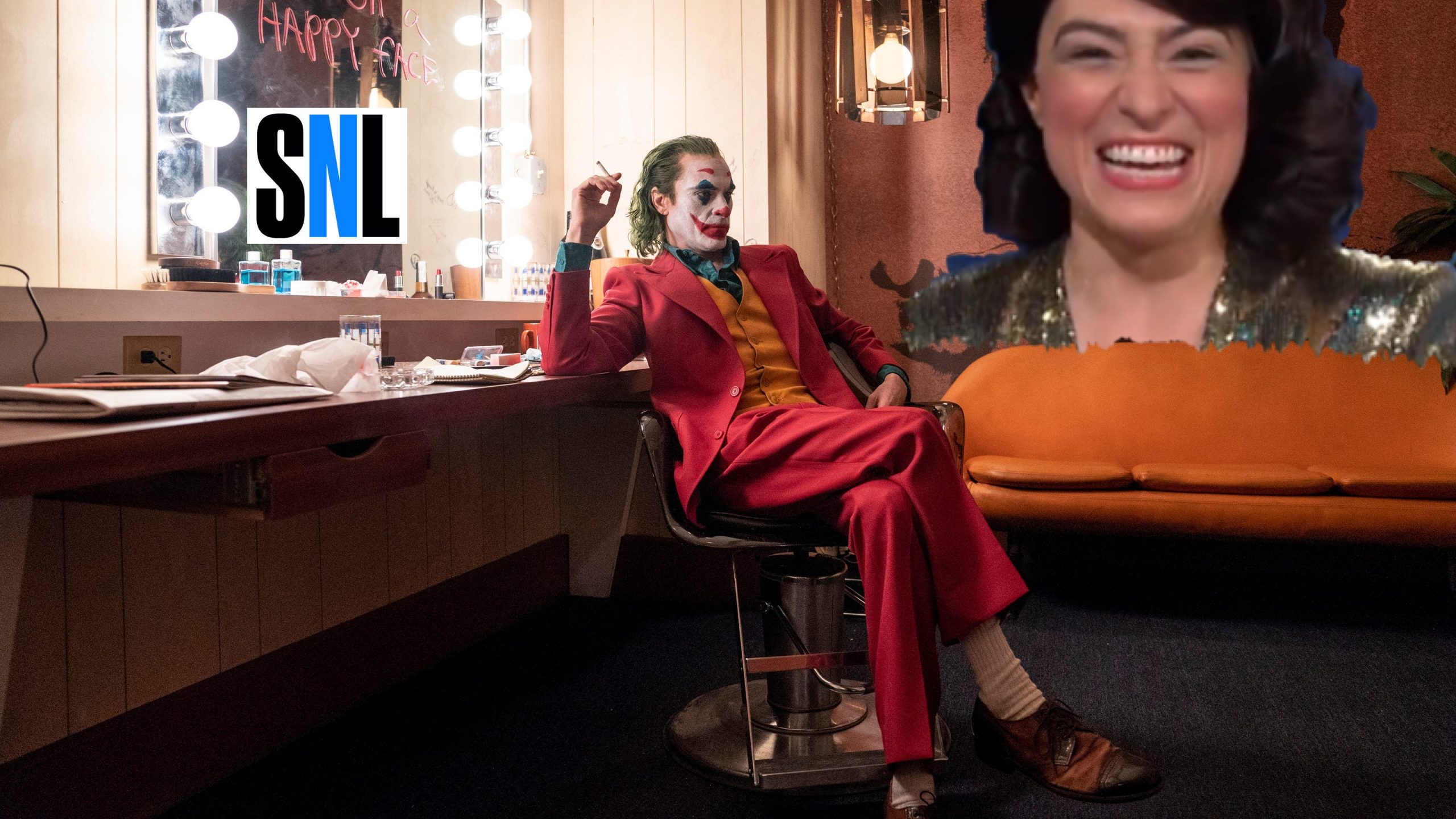The Joke’s on Saturday Night Live

Absolutely everyone is fed up with our clueless elites.
Recently NBC’s Saturday Night Live aired a sketch-within-a-sketch during their Weekend Update segment, showcasing what can only be described as cast member Melissa Villaseñor’s attempt at a woke comedic synopsis of this year’s Oscar nominees. “White male rage,” sang Villaseñor, as (very white) host Colin Jost, beside her, seemed to struggle against laughter.
“White male rage”: That’s what Joker, The Irishman, and even Toy Story 4 were about, according to SNL. It was woke comedy at its cringeworthy worst. It was also the least self-aware comedy sketch I’d seen in a while.
I dashed off a quick tweet about it, commenting on the profound irony of a late-night talk show mocking the plot of Joker as “white male rage” when, in fact, the callousness and utter solipsism of late-night talk show hosts is a focal point of Joker’s plot.
The Joker’s entire plot hinges on late night TV hosts being so out of touch that they think the problems of poor people are funny, so this is doubly ironic https://t.co/XGPst57aBN
— Elijah del Medigo (@AnUntimelyMan) January 26, 2020
It was a quickly written tweet, noting yet another instance of snobbish cultural liberalism disguised as comedy. But the tweet struck a chord, apparently: it went viral. My Twitter mentions were soon flooded with thousands of people who agreed: for a rich, white (and Villaseñor is at least as white as Joaquin Phoenix) talk show host to mock Joker as portraying nothing more than “white male rage” while ignoring the message of the movie is painfully ironic.
Joker is, after all, a movie about a man victimized by an uncaring system, whose grievances are dismissed and mocked by the cultural elite, represented and epitomized in the film by Robert de Niro’s Murray Franklin—and, apparently, in real life by Colin Jost and Melissa Villaseñor.
For all Joker’s retro aesthetics and Scorcesian cinematics, its story is primarily one of the world in which we live: a world in which elite socialites watch the lower classes mocked, belittled, and scorned by their cultural betters for entertainment. As a recent CNN segment reveals, mocking half the nation’s voters who voted for Trump makes our supposed experts laugh hysterically in real life on live television.
For the thousandth reason, count me on team Trump re-elect against these smug and self-satisfied jerks. Contempt for fellow citizens is not a good look. https://t.co/KsNwmGlzwc
— Ryan P. Williams (@RpwWilliams) January 28, 2020
But for Murray Franklin in Joker, for Melissa Villaseñor, and for what we have to suppose is the entire SNL apparatus, the problems of the poor and downtrodden are in themselves a punchline.
What Melissa Villaseñor missed in Joker was that it’s emphatically not just a movie about white male rage. It’s a movie about mental illness, poverty, a fraying social fabric, and an elite that couldn’t care less.
In my original review, I made the case that Joker was actually a deeply realistic film. Its success, I argued, has been in no small part due to the fact that while yes, Joker is the story of a madman, it’s also the story of a man driven mad by circumstances which affect millions of Americans, white and nonwhite, male and female: broken homes, poverty, mental illness, poor healthcare, and an elite that looks disdainfully down on them from their comfortable spots at the top.
To reduce Joker and its appeal to “white male rage” is therefore not only reductive: it’s profoundly stupid, and it’s also the very height of self-parody. And there’s a dark irony here, in case you missed it: the same cultural elites who tried their best to gin up a moral panic when Joker was released can’t understand why it’s been so successful—why it’s struck such a chord in the public consciousness. They say that life imitates art, but rarely are the parallels so stark.
At least Murray Franklin didn’t try to sing.
One thing I noticed while trying to ignore the myriad notifications from my now-viral tweet is that its point was universally recognized: the tens of thousands of engagements it generated came from every segment of the population and every sector of the political compass. Dislike of the brahmins who sit at the commanding heights of American culture is universal. It unifies left and right, black and white, male and female.
People are fed up with elite condescension, plain and simple.
That’s not a politically charged message, much less a racial one. The cultural elite represented by SNL is condescending, clueless, and utterly detached from reality. And when the rare piece of art, such as Joker, critiques that decadent, snobbish, elitism, they dismiss it as “white male rage”.
The American people have had enough of their jokes.
The American Mind presents a range of perspectives. Views are writers’ own and do not necessarily represent those of The Claremont Institute.
The American Mind is a publication of the Claremont Institute, a non-profit 501(c)(3) organization, dedicated to restoring the principles of the American Founding to their rightful, preeminent authority in our national life. Interested in supporting our work? Gifts to the Claremont Institute are tax-deductible.
The case of CNN.
The minor prophets of conservatism may be past their sell-by date.






